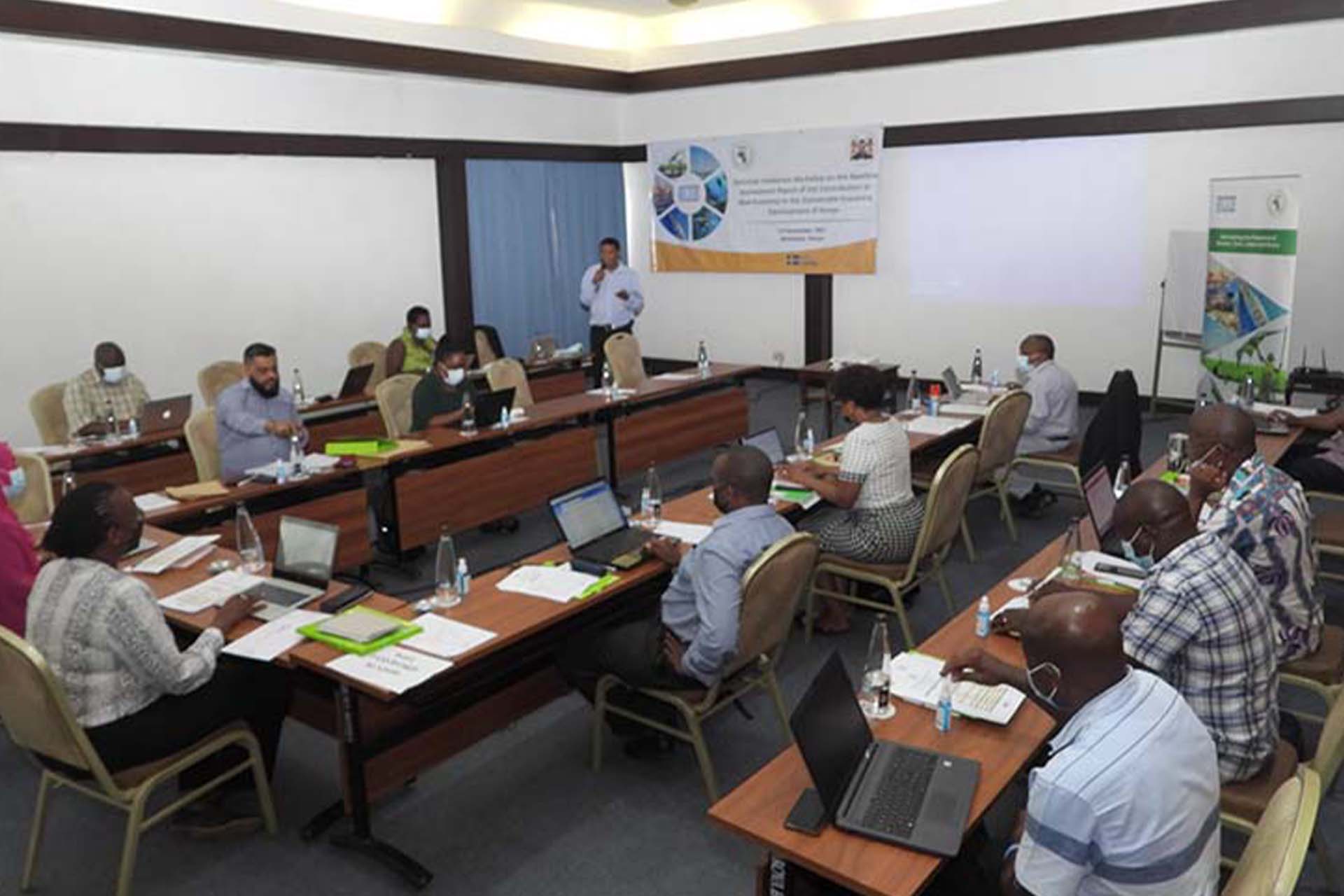November 3, 2021 (MOMBASA, Kenya): The Intergovernmental Authority on Development (IGAD) today inaugurated the National Validation Workshop on the Baseline Assessment Report of the Contribution of Blue Economy to the Sustainable Economic Development of Kenya.

Representatives from various ministries and institutions active in the Blue Economy (BE) sector in the Republic of Kenya are attending this two-day workshop: Ministry of Foreign Affairs, National Focal person for BE, Fisheries and Aquaculture Sector, Coastal and Maritime Tourism Sector, Maritime Transport, Ports and Related Services, Ministry of Environment, Ministry of Water, Ministry of Energy/Mine, Coast Guards, Kenya Marine Fisheries Research Institute, and Women in Maritime (WOMESA).
The workshop will capture contributions from the different sectors of Blue Economy for the national economic development of Kenya. The report will be updated through extensive group discussions and thorough review of the document. The updated baseline report will be available soon and will serve as an input to develop the National Blue Economy Strategy for Kenya.
Speaking for the Executive Secretary, the IGAD Head of Mission in Kenya, Ms Fatuma Adan, recalled that IGAD had “signed a project, with funding from the Sweden government with an estimated budget of 5 million USD for a duration of 3 years in 4 IGAD coastal MS (Djibouti, Kenya, Somalia and Sudan), that aims to improve the governance of the Blue Economy in the IGAD region, conduct marine biodiversity situation analyses, make inventory of chemical and plastic pollutants from source to sea, develop and apply tools to monitor and mitigate chemical and plastic pollutions in the coastal member states.”
She added that the project “will empower women groups to protect the environment and diversify their livelihoods by implementing best practices in selected coastal sites affected by plastic pollution”.
“The IGAD Blue Economy Project has therefore come at an opportune time not only for Kenya but the region as a whole as we anticipate that it will provide inputs to the actualization a regional strategy on blue economy,” Director Enforcement and Emergency Response at Kenya Coast Guard Service, Ms Joyce Awino, said during the opening session.
The expected outcomes of the workshop are:
- Missing data/information filled in;
- National report validated and approved by all sector organisations;
- Input to regional report; and
- Basic document for the validation of the national and regional BE strategies.
A similar workshop took place in Djibouti and will be held in the other IGAD member states: Ethiopia, Somalia, South Sudan, Sudan and Uganda. The National Focal Points for Blue Economy will be engaged to assist in the facilitation of the workshop and the submission of the final reports.
The national Blue Economy baseline reports of the IGAD Member States were developed with financial support from the European Union. The national level validation workshops are supported by the Project “Enhancing Blue Economy in the IGAD Coastal Member States for Biodiversity Conservations and Livelihood diversification” funded by the Government of Sweden.

